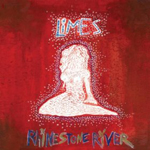|
|
 |
Dusted Reviews
Artist: Limes Album: Rhinestone River Label: Goner Review date: Aug. 20, 2010 |

|
|
|
 |
Limes’ music is structured so loosely that it falls apart in your ear. A sluggish chug, a half-sketched melody, a murmured set of gothic Americana images, and that’s the song. One song is set entirely a service station, en route to vacation, another at a county fair. Yet in some essentially way, these songs are all set in dimly lit, rural drinking establishments, where their characters are getting quietly hammered while ruminating on life’s conundrums. There’s a sense of late night inertia, a drunken haze, a pervasive sense of surreal, slowed-down perception. Listen long enough and the room seems to sway around you, words slur and distances from hand to brain grow longer. “Sitting up here, I can’t help but wonder / How does all the liquor make the heart grow fonder,” Shawn Cripps asks, in his deep, deadpan monotone near the end of Rhinestone River’s title track, a question for the bar, and a question for the ages.
Limes’ has been part of Memphis’ garage blues scene for a decade now, with a rotating cast of characters that always includes songwriter Shawn Cripps and jack-of-all-musical-trades Harlan T. Bobo, but is otherwise supported by whoever’s around. (Oblivians’ Jack Yarber and Viva L’American Death Ray’s Nicholas Ray have both, in the past, sat in with Limes.) For this album, the second following 2005’s Tarantula, that means Memphis mainstays like Paul Buchignani, Ross Johnson and Alicja Trout, among others. It’s a loose confederation of talent, apt to change song to song, show to show. Some six people are credited with playing guitar at one point or another on Rhinestone River, five with drums. A trumpet — that’s Nashon Bedford — floats through “Do You Mind” and “Kantina Katrina,” played low and breathy and dreamlike, so that you almost don’t hear it at all.
Cripps slouches at the center of this casual mesh of talent, moving the songs along with slow blues-guitar licks and spoke-sung verses, widely spaced with contemplation and punctuated, occasionally by high hillbilly falsetto. His never-any-hurry delivery — he sounds like a bluesier Bill Callahan — twists ordinary imagery into vaguely surreal shapes…a cigarette machine’s lights turning psychedelic in “Rhinestone River,” midway lights and rollercoasters taking on mythic shape in “Rusty Old Clock.” Bobo is his chief partner in musical conversation, nudging the action forward with slumberous bass lines, adding ghostly commentaries on a variety of keyboards, and, at one point, banging on the piano like a cakewalk madman.
Cripps’ songs sometimes turn rocking. “Good Times” and “Haunted House” are superlative roadhouse rave-ups. Yet even at their most raucous, Cripps’ songs have a dark desperation to them. And as for the bummed-out songs, like closer “Bad Year,” watch out. A talking blues, this is the bleakest, slowest, least structured cut on the disc, a noire-ish ramble through the hours after last call, where drinks are consumed in other people’s living rooms in the glow of Perry Mason reruns, and recent developments can be summed up in lines like “God-damn, that was a long way to fall.”
Rhinestone River takes its time with everything, its riffs, its songs, its sketched-out vistas of Americana on the skids, and, as such, it’s not an immediate grabber. A few listens in, though, its slow disequilibrium starts to take hold, its tempo makes sense, its mumbled observations start to sound like truth.
By Jennifer Kelly
|







